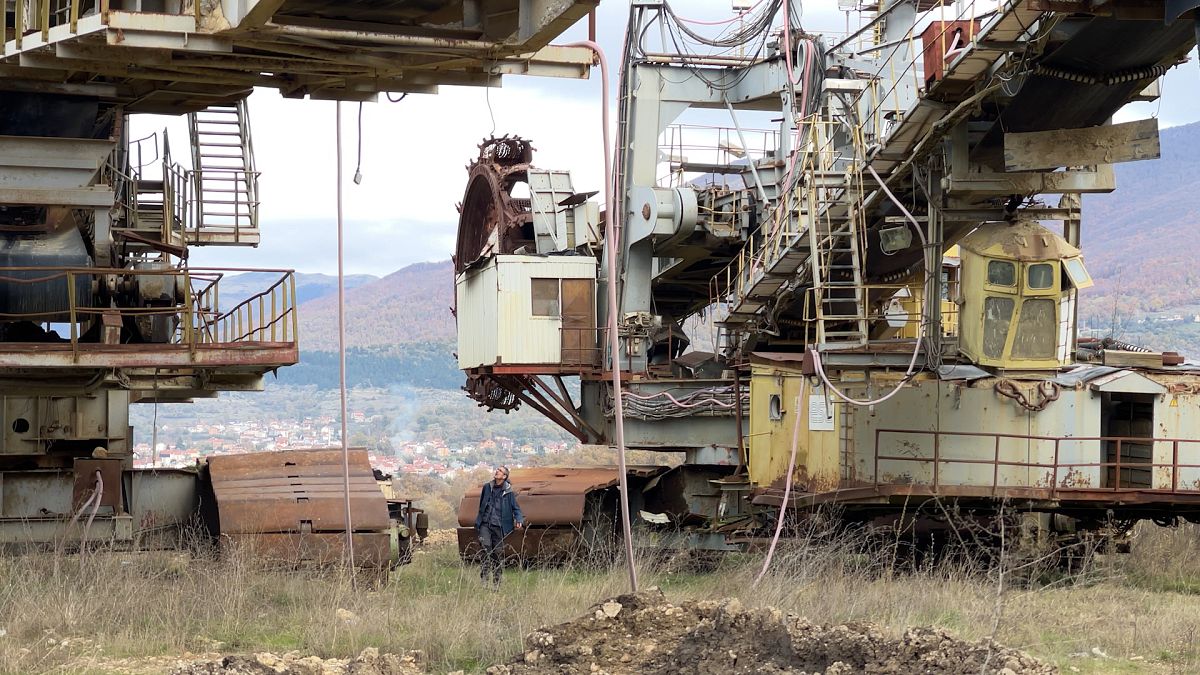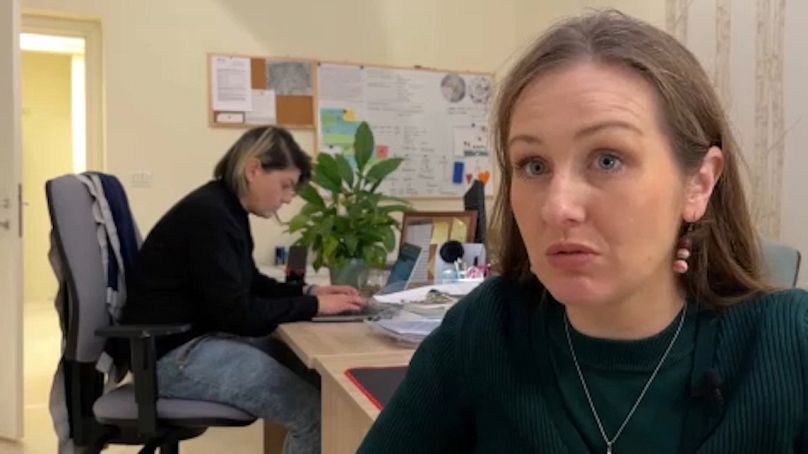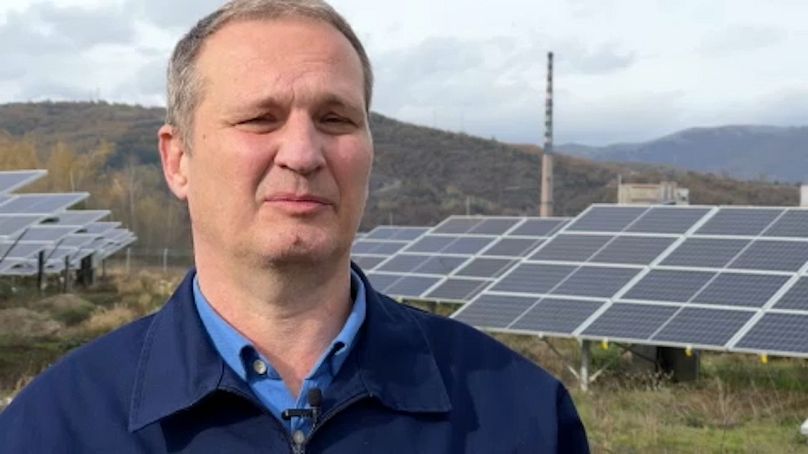North Macedonia is bathed in sunlight, so, phasing out coal should be easy. But because of the energy crisis, the exact opposite is currently happening: ancient coal-fired power plants are blowing huge amounts of toxic emissions into the air and new lignite mines are even being opened up.
Despite a pledge to become the first coal-free country in the Western Balkans, North Macedonia has extended the closing date of its coal-fired power plants several times. Click on the video above to watch the report.
A cloud of thick smoke continuously escapes from the Bitola coal-fired power station. North Macedonia has two coal hubs - REK Bitola and REK Oslomej. 47 per cent of the country’s electricity is produced by burning dirty lignite.
The brown material is extracted from huge opencast pits close to the coal power stations built some 40 years ago. According to Pece Matevski, director of REK Bitola, another coal mine is expected to open: "Soon, we are going to open Zivojno. In the next 30 years we will have enough coal for the power plant to work and to function!"
Coal phase-out postponed from 2027 to 2030
North Macedonia intended to phase out coal by 2027. But the energy crisis has prompted the country of 2 million inhabitants to change its plans. It is now expected to quit coal by 2030.
In the capital, Skopje, Nevena Smilevska is an energy transformation campaigner at the NGO CEE Bankwatch. She is worried about the impact of further delays on the country’s potential accession to the European Union.
“The date of closure needs to remain 2030. It is very unlikely that we will be allowed to disregard the European Green Deal,” she explains.
“If the EU accession does happen, we will have to close the (coal) power plants before we accede,” Smilevska adds. "It does not make sense to get a grant for 'Just Transition' away from coal - and to open a new coal mine. This is unacceptable and would completely destroy the coal exit strategy."
The highest SO2 emissions in the Western Balkans
As lignite reserves (referred to as brown coal) are running out, the country has to import coal from neighbouring countries. A strong reliance on fossil fuels does not improve air quality.
In 2022, the Bitola coal plant had the highest SO2 and dust emissions in the Western Balkans region. 111.000 tons of SO2 were emitted - 17 times more than allowed.
Yet, the country’s average of 280 days of sunshine provides ideal conditions for the production of solar energy. 120 km away from Skopje, in North Macedonia’s oldest coal power plant, Oslomej, the production of energy is set to change. Solar power stations are being built on top of the opencast lignite mine.
Yet, the manager of the photovoltaic power plant has been waiting for its electricity to be fed to the grid for a year and a half.
“We are still waiting for some licences from authorities,” says Cedomir Arsouski.
However, the recent agreement reached at the COP28 could accelerate North Macedonia’s energy transition.
International lenders have announced they will finance a €3 billion plan to completely shut down the country's coal-fired power plants by 2030, and replace them with solar, hydro, wind and gas-powered units.
The goal is to ensure a ‘Just Transition’, deploying 1.7 gigawatts of renewable energy and multiplying energy storage capacities whilst upgrading grid connections.
Will North Macedonia’s green ambition be achieved this time? If the country succeeds to exit coal by 2030, it could be a role model for all of the Western Balkans region - and for some EU members too...



